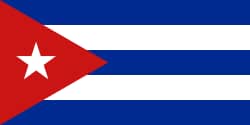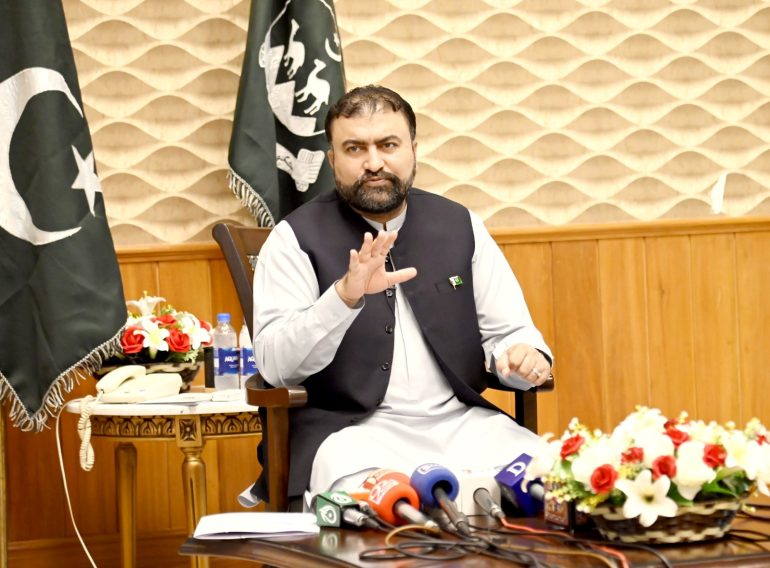Listeners:
Top listeners:
-
play_arrow
104.9FM Best rock music demo
-
play_arrow
Demo Radio Nr.1 For New Music And All The Hits!
-
play_arrow
Demo Radio Techno Top Music Radio
-
 play_arrow
play_arrow
Police Commissioner Launches Weapon and Riot Control Training for FCT Officers Democracy Radio
Cuba Accuses U.S. of Intimidation Ahead of U.N. Vote on Blockade Resolution

By Chinedu Echianu
Cuba’s Minister of Foreign Affairs, Bruno Rodríguez Parrilla, has accused the United States government of waging an “extraordinary campaign of intimidation, deception, and misinformation” against other nations ahead of the upcoming United Nations General Assembly (UNGA) debate on the U.S. embargo against Cuba.
Rodríguez made the allegation during a press briefing in Havana on Wednesday, where he said Washington is pressuring several governments — particularly in Latin America and Europe — to alter their traditional support for the annual resolution calling for an end to the decades-long U.S. blockade.
“We have reliable information that the United States government is exerting intimidating and deceptive pressure on several countries,” Rodríguez said. “Their aim is to coerce them into modifying their historic position in support of lifting the blockade.”
The 79th session of the UN General Assembly will once again debate the resolution titled “Necessity of ending the economic, commercial, and financial blockade imposed by the United States of America against Cuba” on October 28 and 29. The vote has historically seen overwhelming international support for Cuba, with only the U.S. and a few allies opposing it.
Rodríguez said the U.S. campaign includes distributing “slanderous and mendacious” documents to foreign governments, seeking to discredit Cuba and justify continued sanctions. He displayed what he described as copies of letters allegedly sent by the U.S. State Department to several countries, warning them of possible diplomatic and economic repercussions if they support Cuba’s position at the UN.
According to the minister, one of the U.S. communications claims there is “no blockade against Cuba,” a statement he dismissed as “shamelessly false,” citing U.S. laws such as the Helms-Burton Act and Torricelli Act, which restrict trade and impose extraterritorial sanctions on third countries doing business with Havana.
“The lie is truly shameless,” Rodríguez said. “These documents are disrespectful and threatening, linking countries’ votes to unrelated issues such as trade tariffs, visas, and regional security.”
He further accused Washington of hypocrisy for accusing Cuba of human rights violations and being a “threat to international peace,” while, according to him, committing “massive and systematic” rights abuses globally and maintaining aggressive foreign policies.
“It is extraordinarily cynical to accuse Cuba — a country of peace, where the Proclamation of Latin America and the Caribbean as a Zone of Peace was signed — of being a threat to international security,” he said.
Rodríguez alleged that the blockade, which has been in place for more than six decades, remains the “main obstacle” to Cuba’s economic development, causing severe shortages of fuel, food, and essential goods. He cited cases where international companies reportedly refused to supply spare parts or services due to U.S. sanctions, aggravating power shortages and other difficulties across the island.
The Cuban Foreign Minister also dismissed claims — reportedly circulated by the U.S. — that Cuban citizens have been recruited to participate in the war in Ukraine, describing them as “utterly false.”
He said the U.S. government’s intensified pressure reflects its fear of “total isolation” at the UN, where the annual vote has become a symbolic measure of international opposition to Washington’s Cuba policy.
“This anxiety reveals the conviction that the blockade will lead to profound discredit and absolute isolation of the U.S. government,” Rodríguez declared. “I am certain that, once again, the world will vote for truth, justice, and international law.”
The upcoming vote is expected to reaffirm the widespread global consensus against the U.S. embargo, which Cuba estimates has caused over $150 billion in economic losses since its inception in 1962.
“It will be the international community and the United Nations General Assembly against the blockade,” Rodríguez concluded. “The result will once again show the isolation of the United States and the strength of Cuba’s truth and dignity.”
Written by: Toyeebaht Aremu
Similar posts
Copyright Democracy Radio -2024


